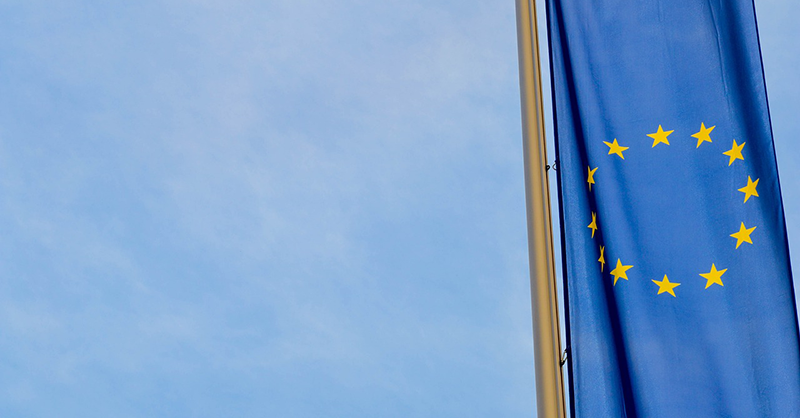EU security strategy’s ‘de-risking’ and ‘resilience’ ambitions put China front and center
20 June 2023 13:50 by Joanna Sopinska

The EU's first economic security strategy will be founded on “robust” identification and handling of economic risks at bloc-wide, national and business level, the European Commission says in a policy paper released today.
The aim is to “de-risk” the EU’s economic relationships with assertive foreign countries, most notably China and Russia, to promote a European technological edge in strategic sectors and to secure access to strategic resources.
“The aim is to provide a framework for robust assessment and management of risks to economic security at EU,” according to the 15-page paper published this morning.
The EU's executive arm hopes to put forward a proposal before the end of this year on a new vetting mechanism for outbound investments by EU companies in critical technologies that might pose a risk to the bloc’s security, as MLex reported yesterday.
It will also take steps to tighten rules on the control of its sensitive exports that could be used for military purposes, and strengthen cooperation with “countries that share our concerns” on addressing the economic security challenges.
“Proportionality” and “precision” are the key principles that will drive the commission’s work on assessing the risks and proposing actions to address them, the paper says. “We should neither overshoot nor underperform,” EU trade chief Valdis Dombrovskis told media today.
The strategy will be presented at the next European Council meeting of the EU heads of state and government, taking place next week in Brussels.
Response to global challenges
The strategy is an EU response to risks that have crystallized because of the Covid-19 pandemic and war in Ukraine, such as shocks to supply chains from price surges, as well as “scarcity of critical inputs.”
“All of these trends pose a direct risk to the functioning of our societies, economies and global trade — as well as a direct challenge to the EU strategic interests and ability to act,” the paper reads.
It’s the first EU document to define economic security for the 27-member bloc. Details of the idea emerged in a speech by commission president Ursula von der Leyen in China on March 30, when she outlined a plan to “de-risk” the bloc’s economic relationship with Beijing.
The new approach was needed, she said, to address Beijing's “ratcheting-up of increasingly assertive actions”.
Alternative to “decoupling”
The EU’s “de-risking” strategy is seen as an alternative to “de-coupling” form China, which has gained some traction in the US. But the latest statements indicate that the Biden administration is looking for other, softer options than cutting economic ties with China.
US Secretary of State Antony Blinken said last month that his country was seeing eye-to-eye with the EU on pursuing a less confrontational approach to China. The first sign of potential de-escalation is in the form of comments from a meeting between Blinken and Chinese president Xi Jinping this week on the need for stabilizing unsteady relations. This is the first visit by a US Secretary of State to Beijing in five years.
European way
The EU's executive has long tried to push forward its own, less hawkish, agenda in relations with China that factors in different national interests of EU member states. It has taken a more realistic approach to relations with China by labeling it in 2019 as an “economic competitor” and “systemic rival,” but without providing a clear recipe for how to address China’s growing assertiveness.
Today's proposed security strategy is aimed at closing this gap.
The paper puts forward a slew of ideas to ensure the EU “de-risks” its economic relationships and develops greater resilience. The strategy is designed to be “country-agnostic,” but the bloc “will use a political filter when assessing the risks,” said EU competition and technology policy chief Margrethe Vestager.
“We cannot treat a supply dependency on a systemic rival the same way as we would treat that dependency on an ally,” she added, naming China and Russia as the first potential targets.
Economic security toolbox
While many EU countries police investments coming into their economies — blocking Chinese acquirers of strategic assets — the commission has been saying since March that greater attention is needed for outbound investments in emerging technologies that might be used for military purposes.
It wants to "ensure that companies' capital, their research, expertise and knowledge are not used to fuel technological advances that will enhance foreign military and intelligence capabilities of countries that may use them to undermine peace and security."
The commission proposes establishing a group of experts from EU countries, operating a "confidential cooperation mechanism."
"The commission is therefore examining possible measures to address security risks related to outbound investments, with a view to tabling proposals before the end of the year," it said.
The war in Ukraine put EU export controls in the spotlight, with efforts to tighten the system to cut Russia from goods and technologies that could be used by the Putin regime for military purposes.
The system needs further strengthening, the commission stressed today, pledging to propose by September a new “list of dual-use technologies” for adoption by EU governments. The commission also wants to increase its oversight on the export controls system, by developing “a more coordinated European approach going beyond the current obligation of ensuring transparency among member states.”
“This is why we propose to start a reflection on how to develop a more coordinated European approach, building on the existing framework and with a view of tabling a proposal by the end of this year,” Dombrovskis said.
Related Articles
No results found
